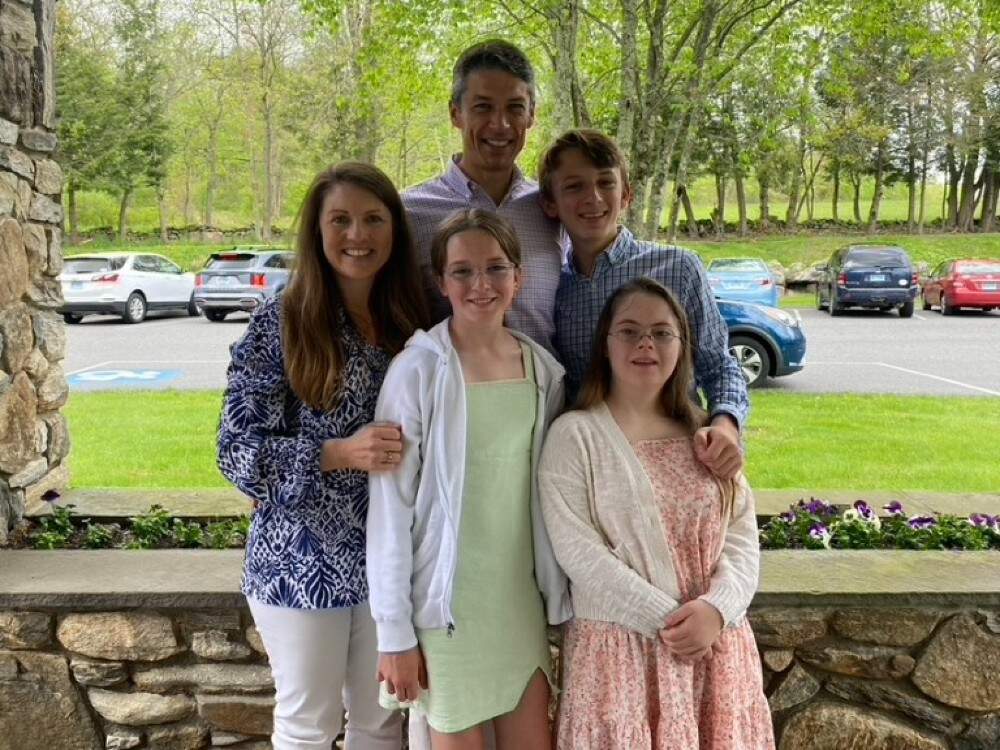Advertisement
Commentary
Why our family still makes time for church on Sundays

On Sunday mornings, our family does something unusual. We wake our three teenagers earlier than they want, shower and dress up a little bit, and drive seven minutes up the road to our local church. Nearly 10 years ago, the Pew Research Center concluded our state, Connecticut, had one of the lowest levels of church attendance in the nation. As much as our family values our participation in a church community, with each passing year, it becomes more and more likely that we will join our New England neighbors and the 40 million Americans who have stopped going to church in the past 25 years.
In their recent book, “The Great Dechurching,” Jim Davis, Michael Graham and Ryan Burge sort the many different reasons for leaving church into two broad categories. There are those who leave because of acute hurt, the ones who were shamed or ostracized due to their political views, the ones who experienced or bore witness to clergy sexual or spiritual abuse, the ones who felt no option but to leave institutions that perpetuated racism or misogyny or homophobia or all of the above. But these reasons only account for one-quarter of the people leaving church.
The majority of those who left did so for no particular reason. Thirty million people, 75%, fall into this category. They are the ones who moved to a new place and never found another church home. The ones who stopped attending services during COVID-19 and didn’t return. The ones who used to show up on Sunday mornings, until birthday parties and soccer games and caring for young children and elderly parents and just generally trying to keep up with the relentless pace of life in modern America took over. If we left, it would be because we drifted away, like so many others.
These days, it’s rare that our family of five sits together in the pews come Sunday morning. Our youngest daughter plays soccer, and most of her games conflict with church. Most sleepover birthday parties — a mainstay of middle school social life — also create a conflict. As our pastor has said, the last thing we want is for her to associate church with missing out on life with her friends. And yet, I know she’s missing out on something else by not being there.
Then there’s our 15-year-old son who lives at a boarding school an hour away. He only attends church with us once a month or so. I asked him recently whether he likes going, and he shrugged. “It’s nice to be known,” he said. He knows that his older sister will raise her hand during the prayer requests and give thanks that her brother is home. He knows that a few of the elderly parishioners will light up when they see him and linger after the service to hear about his classes. At our church, he is a beloved part of an intergenerational community.
Our oldest daughter, a senior in high school, has the most consistent church attendance. Penny has Down syndrome, and her athletic and social calendars are not as full as those of her siblings. Church is a place of belonging for her, where she can slip out of her spot next to her parents and sit with any number of other adults who will welcome her to their side. She hears a consistent message that God loves her and has a purpose for her, and our little community puts that message into action by asking her to read scripture and join the dance ministry and share her experiences during Down Syndrome Awareness Month.
As for me, I’ve pretty much always gathered with other Christians on a weekly basis, knowing that one way I stay tethered to faith is by being tethered to other people. I love a good sermon and appreciate a soaring choir, but the performative elements of church don’t matter much to me anymore. What matters is that a community of vulnerable, gifted, broken and beloved individuals show up — for themselves and each other — week after week. What matters is a place where I, and now my kids too, are known and loved. What matters is the words that are proclaimed from the pulpit and the liturgy being put into action in our relationships.
We are drifting away from one another, and, even more so, from the institutions that connect us — institutions like church — even as we are in desperate need of them.
I’ve thought about when and whether to give our teenagers the freedom to sleep in on Sunday mornings. I want our kids to know that being a Christian is more about a relationship with God than a set of prescribed prayers or a requirement to show up on time. I want them to know they have agency over their spiritual lives. But I also think if they walked away from church they would be more likely to experience the loneliness and disconnection felt by so many of their peers. I want full, connected lives for them and I believe that participation in a church will help by anchoring them not only to their own community, but also to the community of faith around the globe and throughout the ages.

Last May, Surgeon General Vivek Murthy issued a report on the deleterious health effects of loneliness and isolation. He called for greater social connection and community as a matter of public health. We are drifting away from one another, and, even more so, from the institutions that connect us — institutions like church — even as we are in desperate need of them.
In a world that is overpopulated with distraction, entertainment, productivity and busyness, our attendance at church invites us to create time and space to pay attention to each other and to transcendent truths embodied in real people. On Sunday mornings, I’m reminded of a widow who sits a few pews away whose daughter is not speaking to her right now and another church friend who is in the midst of a hard divorce. Encountering this type of real, frail, lovely humanity on a weekly basis also invites me to attend to my own real, frail, lovely soul.
So we will continue to show up, even if erratically, on Sunday mornings. We will respond to our neighbors and listen to words of ancient wisdom. And in the midst of all the busyness and loneliness, we will receive an invitation to know and be known.
